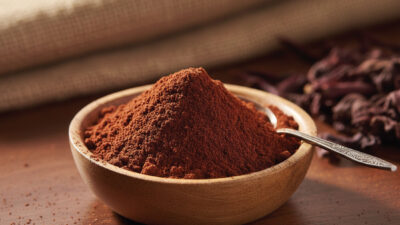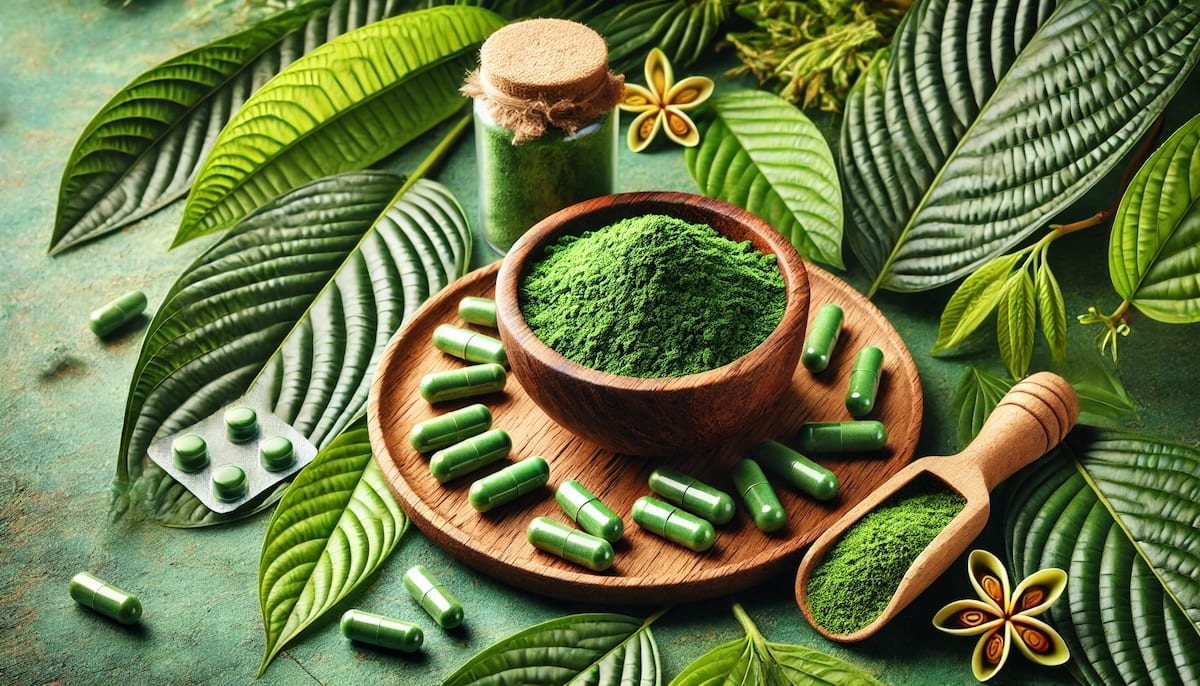For centuries, people have used mushrooms for more than food. Functional mushrooms are gaining attention for their potential to support immune function, focus, and resilience.
But the term can be confusing. What are functional mushrooms? Are they culinary? How do they differ from psychedelic mushrooms? Are functional mushrooms medicinal? Today, we’ll cover:
- What are functional mushrooms?
- How do functional mushrooms work?
- What are the benefits of the different mushroom species?
- How do you choose high-quality mushroom supplements?
Quick Answer
Functional mushrooms are edible fungi used for wellness purposes beyond basic nutrition. Common examples include reishi, lion’s mane, turkey tail, and cordyceps. These mushrooms contain natural compounds like β-glucans, triterpenes, and ergothioneine. These compounds are being studied for their effects on immune activity, stress adaptation, and cognitive support.
Functional mushrooms may be used for culinary purposes, but not all culinary mushrooms have medicinal properties. Lastly, functional mushrooms do not contain psilocybin, so they are not the same as magic mushrooms or psilocybin.
To get the most from a mushroom supplement:
- Choose products made from the fruiting body, not just the mycelium.
- Look for dual extraction methods.
- Check third-party COAs and ensure the products are manufactured in cGMP-certified facilities. Reputable vendors will be transparent about sourcing, testing, and extraction methods.
There are many functional mushroom species. Each has been studied for its unique contributions to wellness support.
Related reading: Do Functional Mushrooms Work?
Functional vs Culinary vs Psychedelic (Important Differences)
Let’s clarify what functional mushrooms are not.
Functional mushrooms are not the same as culinary mushrooms you buy in the grocery store. Mushrooms like button or portobello are eaten primarily for their taste and nutritional value. Functional mushrooms also differ from psychedelic mushrooms, which contain psychoactive compounds. Psychedelic compounds like psilocybin are not legal in most places.
Culinary Mushrooms (e.g., shiitake, portobello)
Used as food, valued for flavor, texture, and nutrients like protein and fiber. Some culinary mushrooms do offer health support, overlapping with functional mushrooms. A good example is shiitake, which may support immune function. Culinary mushrooms are not often taken in extract or supplement form, or at effective doses for targeted wellness.
Notable culinary mushroom species include:
- Agaricus bisporus (Button / White Mushroom, Cremini / Baby Bella, Portobello)
- Lentinula edodes (Shiitake)
- Grifola frondosa (Maitake / Hen of the Woods)
- Pleurotus ostreatus (Oyster)
- Flammulina velutipes (Enoki)
- Cantharellus cibarius (Chanterelle)
- Morchella esculenta (Morel)
- Boletus edulis (Porcini / King Bolete)
Psychedelic Mushrooms
Contain psychoactive compounds. Used in completely different contexts, often for therapeutic or spiritual purposes. Some are considered unsafe or are illegal in the U.S.
Notable psilocybin-containing species include:
- Psilocybe semilanceata (Liberty Cap)
- Psilocybe cyanescens
- Psilocybe azurescens
Functional Mushrooms
Safe, non-psychoactive, and are often used in daily routines to support focus, energy, mood, immune health, or stress response.
Popular Types of Functional Mushrooms
Functional mushrooms are each known for distinct potential benefits. These benefits are based on the active compounds each contains.
Lion’s Mane (Hericium erinaceus)
Lion’s Mane has a shaggy, icicle-like shape. It contains hericenones and erinacines. It is thought to support focus, memory, and cognitive function.
Reishi (Ganoderma lucidum)
Reishi contains triterpenes and polysaccharides. It may support stress balance and relaxation.
Cordyceps (Cordyceps militaris / Cordyceps sinensis)
Cordyceps contain cordycepin. It is often used to help maintain energy and stamina.
Turkey Tail (Trametes versicolor)
Turkey Tail contains PSK and other polysaccharides. It may support a healthy immune response and gut function.
Chaga (Inonotus obliquus)
Chaga grows on birch trees. It contains melanin and betulinic acid. It may support antioxidant activity.
Maitake (Grifola frondosa)
Maitake contains D-fraction polysaccharides. It may help maintain immune function.
Shiitake (Lentinula edodes)
Shiitake contains lentinan and beta-glucans. It may contribute to immune support.
Tremella (Tremella fuciformis)
Tremella, or Snow Fungus, contains polysaccharides. It may support skin hydration and moisture retention.
Popular Functional Mushrooms (At-a-Glance Table)
A quick comparison table can help you discern which species are likely to be the most helpful to you. Take a look at how the functional mushrooms may compliment your wellness routine.
| Mushroom | Scientific Name | Notable Compounds | Common Formats | Suggested Supportive Role |
| Lion’s Mane | Hericium erinaceus | Hericenones, Erinacines | Capsule, Tincture | Focus, memory, cognitive function |
| Reishi | Ganoderma lucidum | Triterpenes, Polysaccharides | Tincture, Capsule | Stress balance, relaxation |
| Cordyceps | Cordyceps militaris / Cordyceps sinensis | Cordycepin | Powder, Tincture | Energy, stamina |
| Turkey Tail | Trametes versicolor | PSK, Polysaccharides | Capsule, Powder | Immune response, gut function |
| Chaga | Inonotus obliquus | Melanin, Betulinic acid | Powder, Tea, Tincture | Antioxidant activity |
| Maitake | Grifola frondosa | D-fraction, Polysaccharides | Capsule, Powder | Immune function |
| Shiitake | Lentinula edodes | Lentinan, β-glucans | Capsule, Cooked | Immune support |
| Tremella | Tremella fuciformis | Polysaccharides | Capsule, Powder | Skin hydration, moisture retention |
Always verify that products come with a detailed COA showing compound levels and safety testing.
Kats Botanicals provides functional mushroom tinctures in pairings that maximize their therapeutic potential. Browse our functional mushroom products to learn more.
How Functional Mushrooms Work in the Body
Functional mushrooms interact with the body in several key ways. Most are considered adaptogens, meaning they help the body adapt to physical and emotional stress. Here’s how they work:
- Immune Modulation: β-glucans in many mushrooms are thought to help activate immune cells.
- Brain Support: Compounds like hericenones and ergothioneine may provide brain support. These compounds are thought to be neuroprotective and may support nerve signaling. Preventing oxidative stress may support overall resilience and health.
- Stress and Sleep: Mushrooms such as reishi may help the body manage stress and support restful sleep.
- Gut Health: Some mushroom polysaccharides may act as prebiotics, feeding beneficial gut bacteria.
These effects tend to build gradually over time rather than offering immediate results. Functional mushrooms are often used as daily support, not quick fixes.
Want to learn more about how mushrooms and other plant-based supplements work? Follow our comprehensive Plant Wellness Guidebook for articles that will keep you up-to-date.
Potential Benefits and Research Outlook
While functional mushrooms have been used for centuries, modern science is still catching up. Many studies show promise but are often in early stages using cells or animals.
One of the most cited works is the 2015 study on Ganoderma lucidum (reishi) in the Journal of Ethnopharmacology. This study explored immune modulation through β-glucans. In it,reishi mushrooms were found to activate immune cells, including macrophages.
Research is also beginning to examine other functional mushrooms and their mechanisms in the body. For example, lion’s mane (Hericium erinaceus) for potential neuroprotective effects. And cordyceps for energy metabolism. Turkey tail is gaining research interest for its potential role in gut health.
To learn more about scientific studies on functional mushrooms, see:
- PubMed Central: Hericium erinaceus neuroprotective effects
- PubMed Central: Cordyceps energy metabolism study
- PubMed Central: Trametes versicolor gut and immune support
When used correctly, functional mushrooms can be a reliable part of your wellness routine. But, functional mushrooms aren’t miracle cures, nor are we medical professionals. This means you’ll need to explore various sources and speak with your doctor.
Most Common Forms and How to Use Them
There are a variety of ways you can take functional mushrooms. Once you’ve selected the species you want to incorporate into your routine, select the delivery method. Choose what feels most natural and comfortable to you.
Comparison of Functional Mushroom Formats
| Format | Key Points | Pros | Cons |
| Capsules | Pre-dosed, usually fruiting body extract | Convenient, flavorless, standardized | Less flexible dosing, slower onset |
| Powders | Added to drinks or recipes, often hot-water extracted | Flexible dosing, versatile | Earthy taste, requires measuring |
| Tinctures / Liquid Extracts | Dual-extracted (alcohol + water) | Fast absorption, full-spectrum compounds | Strong taste, short shelf life once opened, quick onset |
| Functional Blends | Mushrooms combined with other adaptogens | Targeted benefits, convenient | Mushrooms may be underdosed, marketing claims |
| Whole Mushroom Teas | Traditional brewing of whole or cut mushrooms | Ritualistic, soothing | Inconsistent dosing, less concentrated |
What are each of these formats best for?
- Capsules: Good for those who want simplicity and a reliable dose. Ideal for daily routines without taste concerns.
- Powders: Flexible for adding to coffee, smoothies, or tea.
- Tinctures / Liquid Extracts: Concentrated, fast-acting, and convenient under the tongue. Dual extraction captures more active compounds.
- Functional Blends: Combine mushrooms with other adaptogens. These may help with specific goals like focus or immunity.
- Whole Mushroom Teas: Traditional method with an earthy taste. Great for ritualistic use but less precise in dosing.
Now that you know what you’re looking for in a functional mushroom species and format, let’s look at how to buy functional mushrooms. What to look for, and of course, where to buy the best functional mushroom supplements.
How to Identify a Quality Mushroom Product
Not all mushroom products are created equal. There are some key details to look for when shopping for functional mushrooms online. Or, you can ask the store clerk about these when you go in to a shop.
Fruiting Body vs. Mycelium
The fruiting body is the actual mushroom you see above ground. It contains the highest concentration of beneficial compounds. Some manufacturers use mycelium on grain, a cheaper, lower-potency alternative. Look for products that clearly state “fruiting body extract” on the label.
Extraction Method
Dual extraction (water + alcohol) is the gold standard. It ensures both water-soluble and fat-soluble compounds are captured. If a label doesn’t mention extraction, it may be ground mushroom powder with poor bioavailability.
Testing and Transparency
Look for companies that provide COAs (certificates of analysis) from third-party labs. These confirm purity, identity, and potency, and help ensure the product is free from heavy metals or contaminants.
cGMP Manufacturing Standards
cGMP (current Good Manufacturing Practices) are industry-best. This certification means the product was made in a facility that follows strict safety and quality controls. It’s a strong trust signal in the supplements world.
Honest Labeling and Dosing
The product should list the amount of active ingredients per serving, not just the total mushroom powder. This helps you understand what you’re actually getting.
Kats Botanicals offers third-party lab testing on all their functional mushroom tincture supplements. All products are made with the same attention to excellence as our CBD and other botanical products.
Functional Mushrooms FAQ
Functional mushrooms are edible fungi used for wellness beyond basic nutrition. Common examples include reishi, lion’s mane, turkey tail, and cordyceps. They contain active compounds like β-glucans, triterpenes, and ergothioneine. These types of mushrooms are often taken as supplements for health support.
No. Functional mushrooms are non-psychoactive and safe for general wellness. Psychedelic mushrooms contain psilocybin and are used in different legal and medical contexts.
Effects vary by person, product, and consistency of use. Functional mushrooms are usually taken as daily support; they are not quick fixes.
Some mushrooms may interact with medications or medical conditions. Always research and check with your medical professional for species-specific guidance.
Pick ones made from the fruiting body. Check that labels are clear and informative. If relevant, choose products with dual extraction. Look for third-party COAs and cGMP-certified manufacturing.
The Bottom Line: Safe, Subtle, and Supportive
Functional mushrooms are best viewed as long-game allies. They are tools for supporting balance, resilience, and mental clarity over time. Unlike stimulants or pharmaceuticals, their effects are subtle and cumulative.
Because this type of supplementation is generally well-tolerated, functional mushrooms are a popular choice. People turn to functional mushrooms when they want sharper focus, deeper sleep, or stronger immune support. Mushrooms like lion’s mane, reishi, and turkey tail offer science-backed potential in natural form.
Choose products from transparent vendors that use real fruiting bodies, avoid fillers, and provide clear labels and test results. Explore how these powerful fungi can support your goals, naturally. Shop for the best functional mushrooms at Kats Botanicals, your trusted supplier of botanical support.
This article is for informational purposes only and is not medical advice. Always consult a healthcare professional before starting any supplement.











